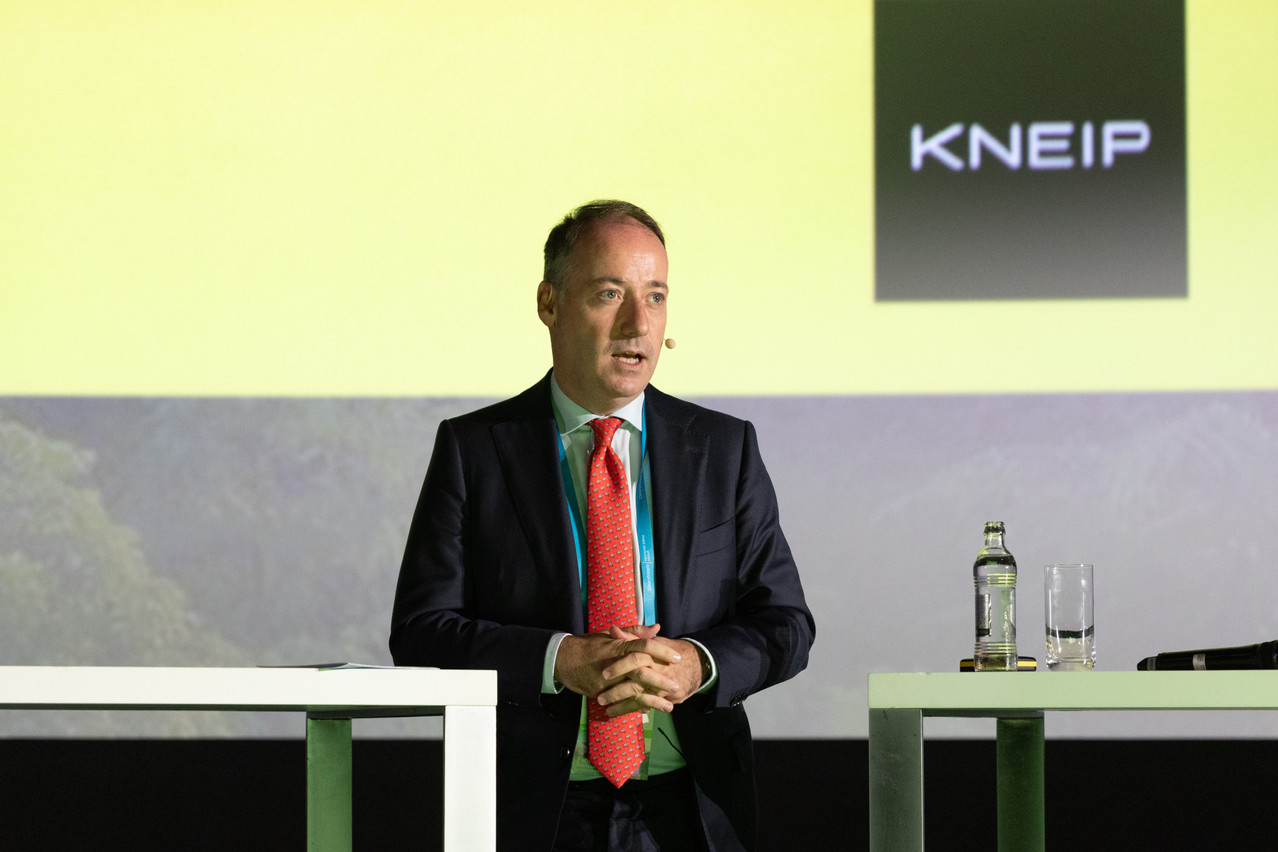“What I want to talk about is data governance and safety, because regulation is there to keep our markets safe, to ensure that our long-term savings are looked after,” said , CEO of Kneip, a firm that provides fund data management and reporting solutions and that was . Sacau was speaking at the annual Clearstream Fund Summit on Thursday, during which experts discussed trends, evolutions and challenges in the fund services and asset management industry.
“Last year, we talked about the fact that data is really not gold, not just because of the more objective characteristics of gold--tangible, difficult to mine,” said Sacau, referring to his presentation at the conference the year before. “Data only becomes gold when we can derive actionable insight from it, as raw data points really do not do much for us.”
“But what I think we need to talk about is data and safety, data governance and regulation,” he said. “As an industry, we leave still quite a bit to be desired when it comes to data management,” he added, mentioning inconsistencies in data, issues with greenwashing and ESG and the percentage of financial service institutions that didn’t have enterprise data strategy.
Last Christmas…
“I can tell you three things I did last Christmas that I hope I never have to do again,” said Sacau. These were: a conference call with the Kneip team on Christmas Day, six phone calls with a client on the 1st of January and a call with a customer at 10 in the evening during an early January dinner with a friend.
And the reason for these calls? The Priips regulation.
Read also
The packaged retail and insurance-based investment products (Priips) regulation came into force on 1 January 2023, requiring investment funds to provide key information documents to consumers. “It’s aimed towards ensuring that we keep our markets safe, it’s aimed at protecting the end customer, and the end customer is all of us here, middle class people who are saving for the future, but also our relatives or friends, people less fortunate than us, people more fortunate than us.”
This was a sort of “Waterloo” moment for the industry, said Sacau. “It was a data problem. If we had got our data act together as an industry, we would all have had a much better Christmas.” We can’t continue having this conversation with every regulatory change, he said.
A few simple things to consider
“There are only six simple things we need to do as an industry--all of us, whether you work with our competitors, with Kneip, with your internal colleagues, whether you outsource, insource, whatever it is--it really is only six things,” said Sacau. “If we do these six things well, next Christmas will be a nice Christmas.”
These are: getting all the data needed for regulatory changes in one place, getting all the data in at once (instead of per service), getting all outputs from one source, ensuring that all data is always consistent, saving time (which, Sacau noted, is more something that Kneip aims to take care of for clients) and validating all the data.
All the problems we’re seeing for ESG, all the problems that we’re seeing for regulatory change are linked to data problems
So really, that’s only five things. And “if we--as an industry--do these five things together, no Priips Christmas ever again. Because all the problems we’re seeing for ESG, all the problems that we’re seeing for regulatory change are linked to data problems,” said Sacau.
“This regulatory tsunami that we’ve seen since the financial crisis will not slow down--we all know there’s going to be more regulation, we’re going to have to protect the end customer even more. We’re going to have to be more diligent,” said Sacau. Technology like blockchain and artificial intelligence will come into play, “but if you don’t get the simple governance points right, it’s going to be very difficult, the next wave of the tsunami.”
“AI is going to be truly revolutionary”
“We have technology at our disposal that we couldn’t dream of five years ago. Not even 10, 15 years ago,” said Sacau. “Cloud was truly revolutionary. AI is going to be truly revolutionary. And blockchain has made its impact too.”
“So we need to provide you with a regulatory awareness, with governance to make sense of that data, and then with the technology, which allows you to reuse everything you give us,” Sacau told the audience.
I believe that artificial intelligence will help us simplify the way we operate, the way we mine data, the way we source it, store it
Asked about how artificial intelligence could be applied to transforming data, Sacau replied, “I think there are two levels of opportunity. There is an operational opportunity, which is where I believe that artificial intelligence will help us simplify the way we operate, the way we mine data, the way we source it, store it, etc.”
“But there’s a level above it, which is that I think artificial intelligence--once all the basics are covered and the data is where it should be--is going to help us make sense of it and generate insight. And I think that is going to mean a lot for us.”
“In terms of risk, there’s always risk,” he responded, when asked about potential risks that could arise when using artificial intelligence to transform data. “We have less risk when intelligence--either artificial or real--is involved.”


